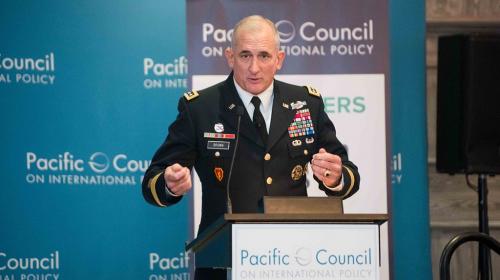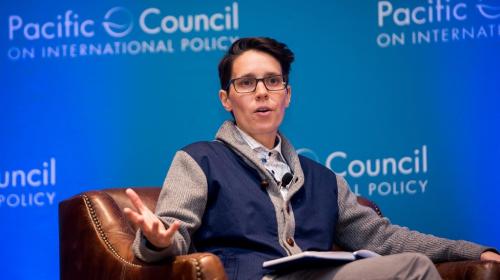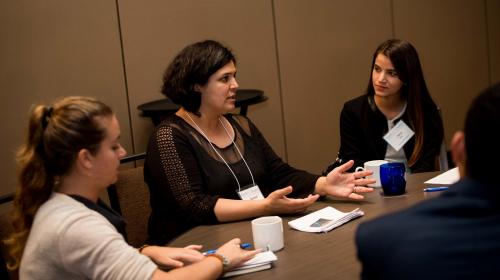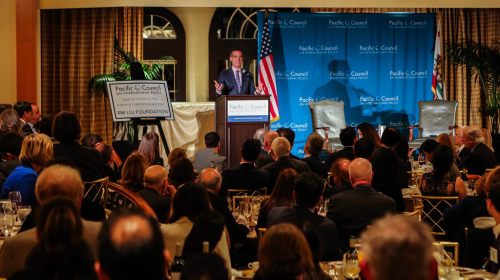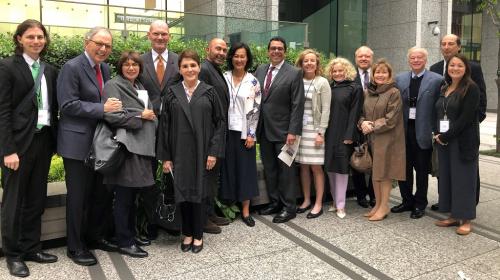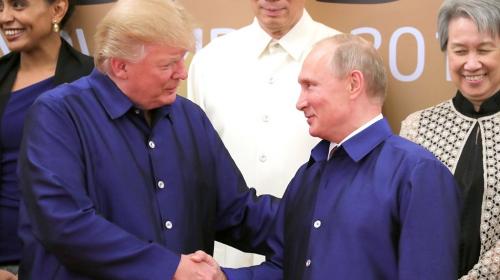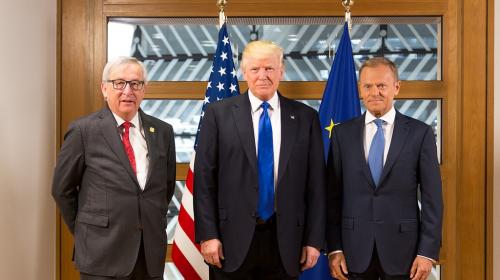Derek Grossman, a senior defense analyst at the RAND Corporation, interviewed General Robert B. Brown, Commanding General of the U.S. Army Pacific, at Members Weekend 2017.
Following his talk at the Pacific Council's 2017 Gala Dinner in early September, President George W. Bush writes about his paintings and stories in his new book, Portraits of Courage.
There are incredible challenges when it comes to water, but California is on the right track in terms of innovations taking place, said Water Deeply Managing Editor Tara Lohan at our inaugural Water Conference.
Watch the TED-style talks about water scarcity challenges and solutions by Barton Thompson, Kirsten James, and Rachel Cardone at our inaugural Water Conference.
A special address by Los Angeles Mayor Eric Garcetti, made possible by the generous support of the RM Liu Foundation.
At our inaugural Global Los Angeles Summit, Pacific Council members interviewed three speakers on Facebook Live to hear their takes on NAFTA and implementing the UN's Sustainable Development Goals in New York and Los Angeles. Watch the videos here.
U.S.-Japan relations are strong, but prominent issues such as trade wars and territorial disputes pose challenges in the Asia-Pacific region, Pacific Council delegates learned on a recent visit to Japan.
This week, President Trump and President Putin announce they will hold their first official summit on July 16 in Helsinki; women can now drive in Saudi Arabia; Kenya and the United States sign a $100 million investment deal; and more.
July 1 was perhaps the most consequential election in Mexican history, and the coming months will be a time of transition and some degree of uncertainty, writes Michael Camuñez.
A panel discussion about the variety of approaches to immigration by the EU and the United States.


